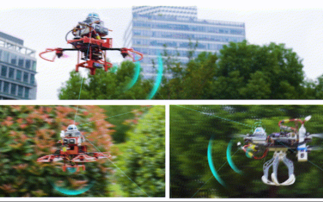Can we interest you in an Internet of Things home security system?
So, you've bought and installed one of those cheap CCTV systems that come bundled with an equally cheap digital video recorder (DVR) in order to check-out who's sniffing around your back gate while...
To continue reading this article...
Join Computing
- Unlimited access to real-time news, analysis and opinion from the technology industry
- Receive important and breaking news in our daily newsletter
- Be the first to hear about our events and awards programmes
- Join live member only interviews with IT leaders at the ‘IT Lounge’; your chance to ask your burning tech questions and have them answered
- Access to the Computing Delta hub providing market intelligence and research
- Receive our members-only newsletter with exclusive opinion pieces from senior IT Leaders

















